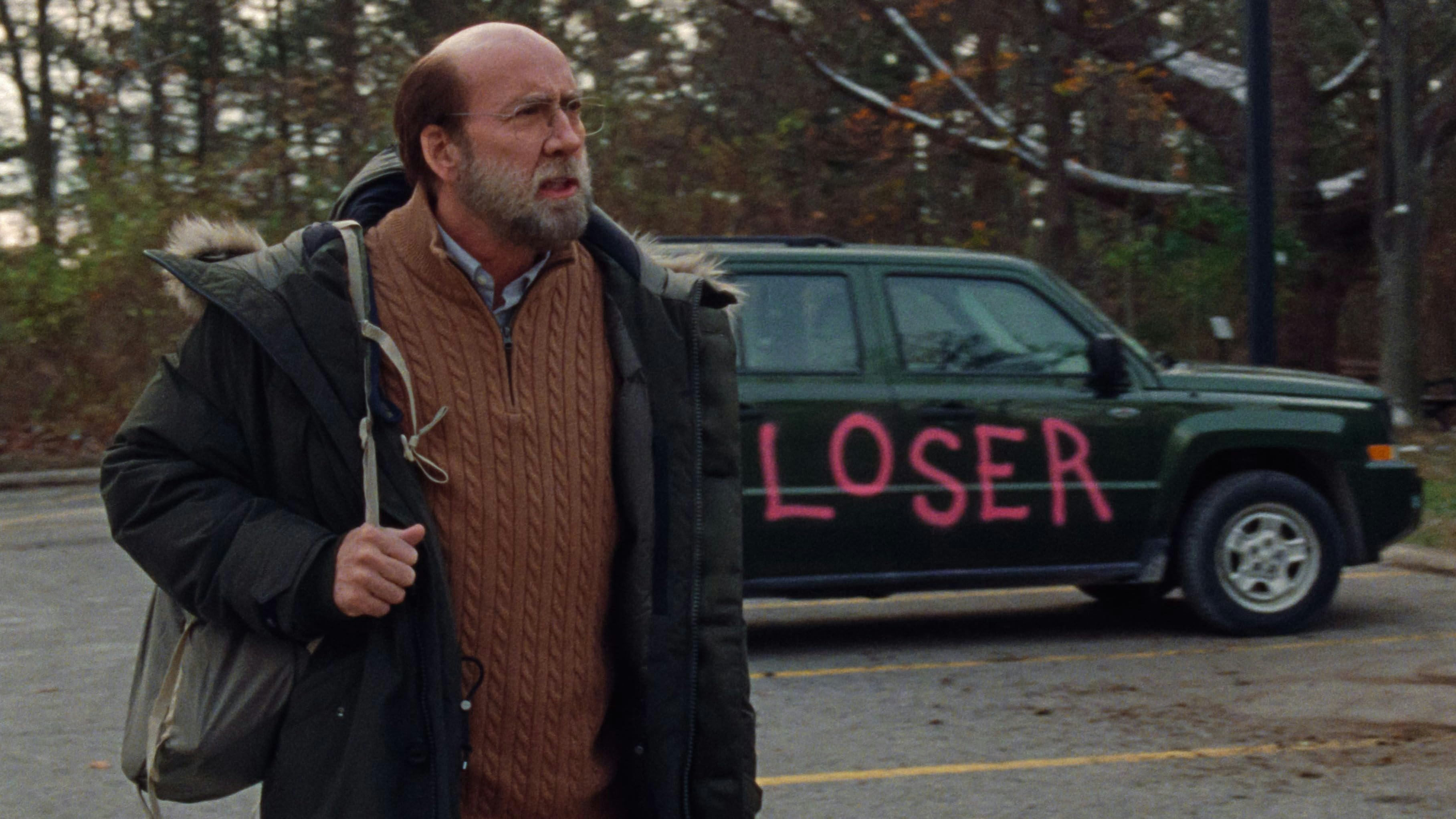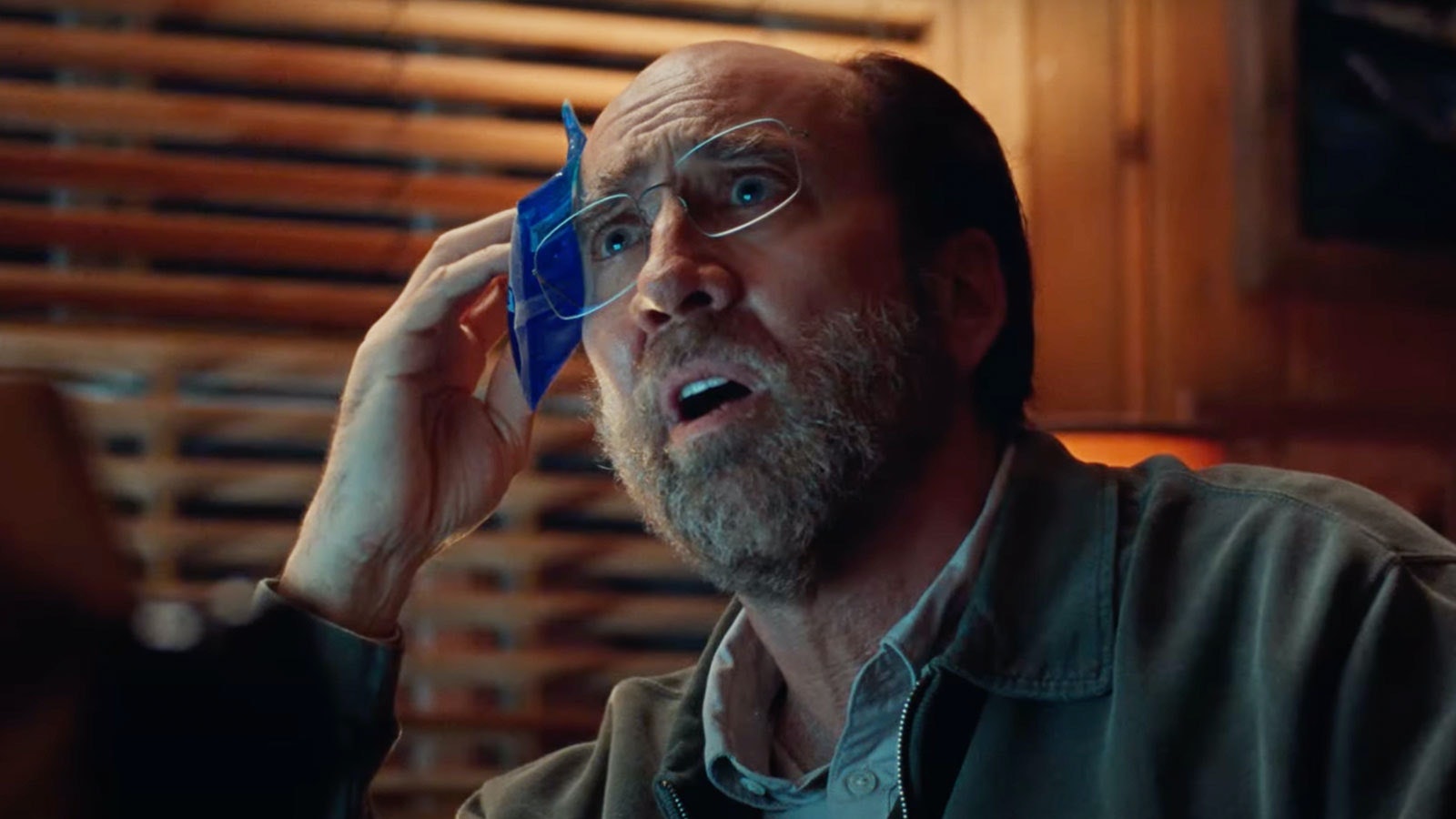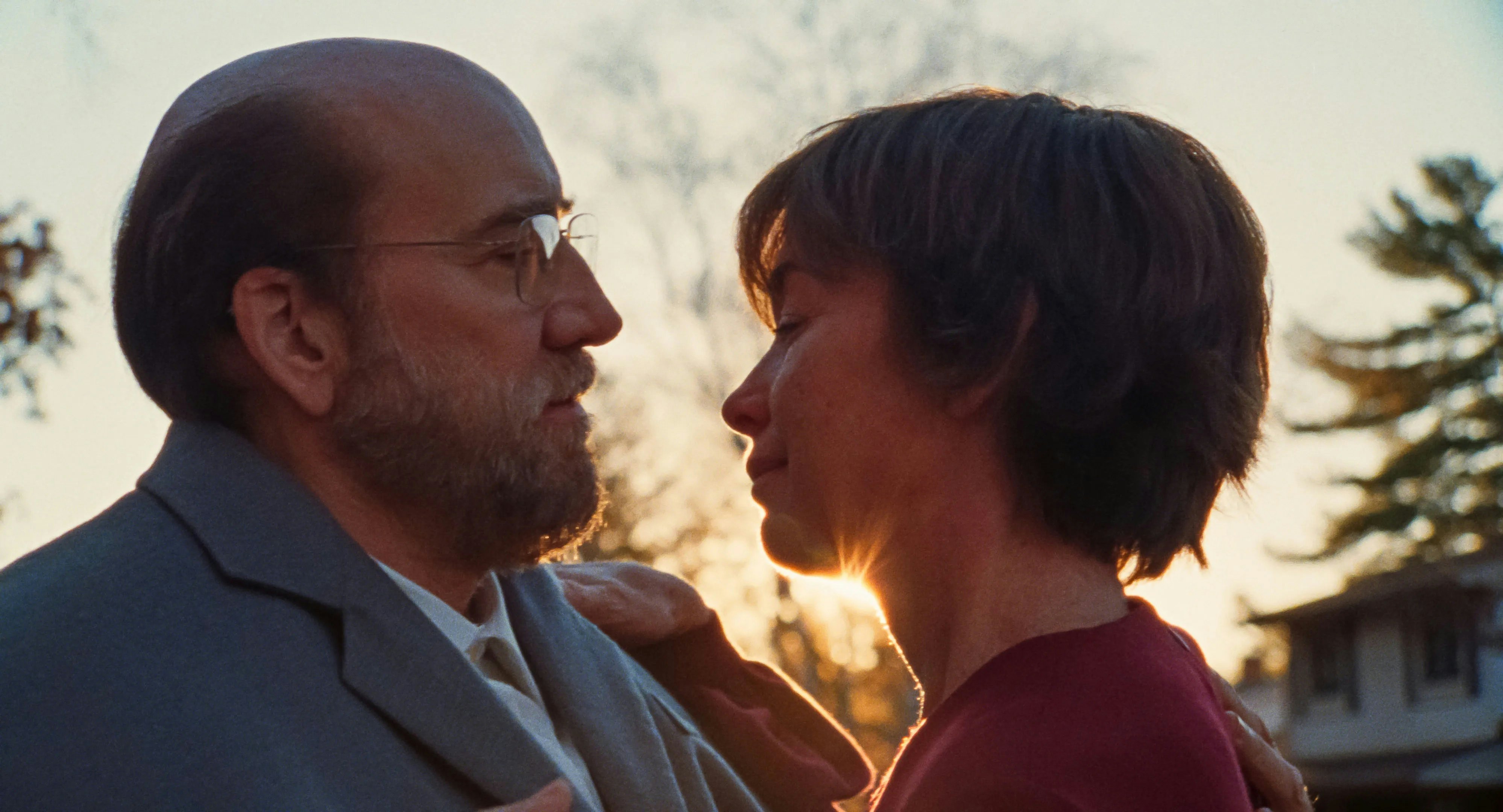
In A24’s surreal new dramedy Dream Scenario, Nicolas Cage plays the “most interesting man in the world.” That seems like a given — Cage hasn’t met a wild swing that he hasn’t taken with the most wild-eyed zeal imaginable — but Dream Scenario imagines Hollywood’s most interesting man as not that interesting at all. In fact, he’s a little boring, a little abrasive, and more than a little unlikable. That is, until he starts popping up in everyone’s dreams.
Written and directed by Kristoffer Borgli, Dream Scenario is a hysterically dark takedown of “cancel culture” and all its sudden highs and equally sudden lows. The film stars Cage as Paul Matthews, a mousy, hapless college professor due for a midlife crisis. But his crisis comes in a very different way: He suddenly finds himself the star of his daughter’s bizarre dream. Hilariously, he’s not disturbed by the content of her dream, which involves a scary scenario in which mundane items fall like meteorites from the sky.
What does bother Paul is that he’s not doing anything in the dream except raking leaves. Then, more people approach Paul with the confession that they’ve dreamed about him: his ex-girlfriend, his students, hundreds of random strangers who have never met him before. Soon, he finds himself an overnight sensation, the man of everyone’s dreams. Paul is overjoyed at the attention but grows frustrated at his dream self’s passivity in all the dreams he hears about. Predictably, this all changes when everyone’s dreams take a sinister turn, and Paul becomes the world’s No. 1 pariah.

Ari Aster produced Dream Scenario, and it fittingly feels like a member of the same heightened satirical family as Beau Is Afraid. Both are comedies shot like horror movies, taking everyday conflicts way beyond the reasonable norm and magnifying every bad feeling until each social faux pas plays like a mortifying jump scare. But while Aster stumbled under the weight of Beau Is Afraid’s unwieldy odyssey, Borgli, in his English-language feature debut, delivers a transfixing, wickedly funny cringe comedy about the dangers of celebrity that manages to walk the line between goofy satire and secretly horrific indie drama.
Borgli and his director of photography Benjamin Loeb shoot the film in a muted, naturalistic color palette while cranking up the absurdity of each dream. Those scenes play out like horror movies, a little ominous and, more often than not, apocalyptic. In one student’s dream, bodies are strewn across the classroom floor as tables and chairs fly upward — Paul, meanwhile, strolls along offering a stoic comfort. In another, a student is chased through a field by a faceless serial killer, and Paul is also there, enjoying nature.
Do these frequently dire dreams mean anything? Borgli doesn’t offer much in the way of explanation, though one could read it as a reflection of our collective anxiety about an increasingly chaotic world — and also, Paul is there. But just like the “dream epidemic” at which Paul is the center, no scientific reason behind this phenomenon can be found nor is there a reason for why the dreams suddenly take violent turns, all at the same time. It’s here where reality and dream begin to blend together, and the ominous tone that dances on the edges of Dream Scenario starts to seep through the rest of the movie.

Dream Scenario’s unique tonal tightrope works thanks to Nicolas Cage’s central performance as the thoroughly pathetic Paul. Not since Adaptation has Cage played such a pitiable loser — a performance callback that feels fitting considering the similar reality-twisting narratives of both films. He seems to relish playing such a frustratingly ordinary man. Paul isn’t your ordinary schlubby everyman, he’s an unbelievably arrogant one who thoroughly believes he deserves more than his comfortable suburban life. That’s why he so gleefully buys into his newfound celebrity, treating it as something that he’s earned rather than a random phenomenon that just happened to him. And when he ultimately does get canceled for something that is equally out of his control, it’s hard to feel sorry for him. It lends to Borgli’s sly takedown of viral fame, a concept so arbitrary, ridiculous, and fleeting it could happen to someone as undeserving as Paul.
Dream Scenario has such a tight, intriguing premise that it inevitably loses steam once it moves beyond it, and the final act of the film does seem to struggle to find the same kind of sharp commentary as the beginning. The appearance of more star-studded cameos, including a hilarious Michael Cera as a slick entrepreneur who wants to capitalize on Paul’s overnight fame, overloads Dream Scenario with one too many points of satire until it starts to lose the plot.
But even as Dream Scenario moves further into the absurd, it maintains the same wry view of cancel culture. No, it’s not particularly saying anything new, and yes, it’s yet another diatribe against social media. But it’s one that’s as silly and ludicrous as the concept of viral fame that it’s satirizing. And best of all, it’s got Nicolas Cage playing the most interesting man in the world, in the most absurd way possible.







